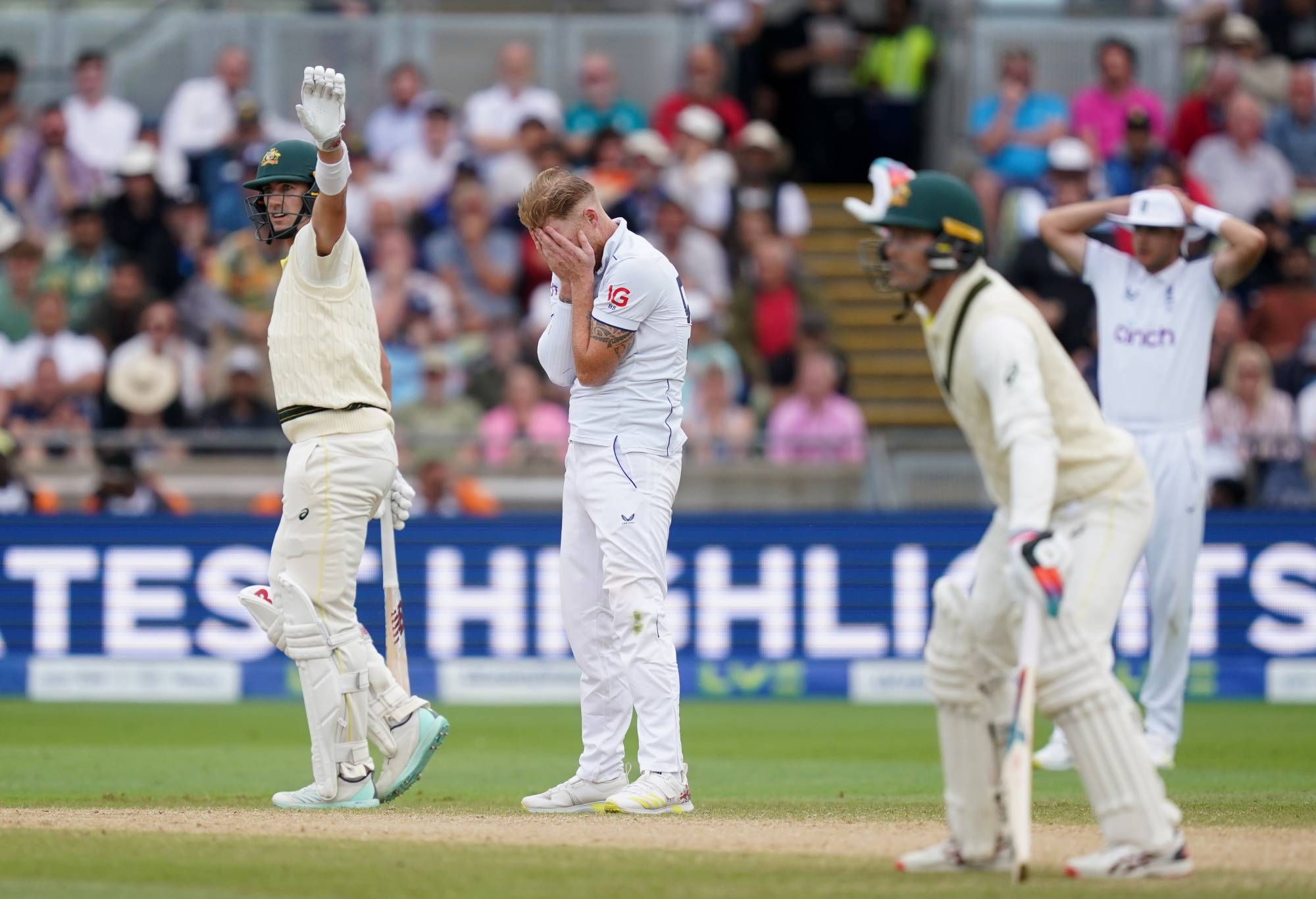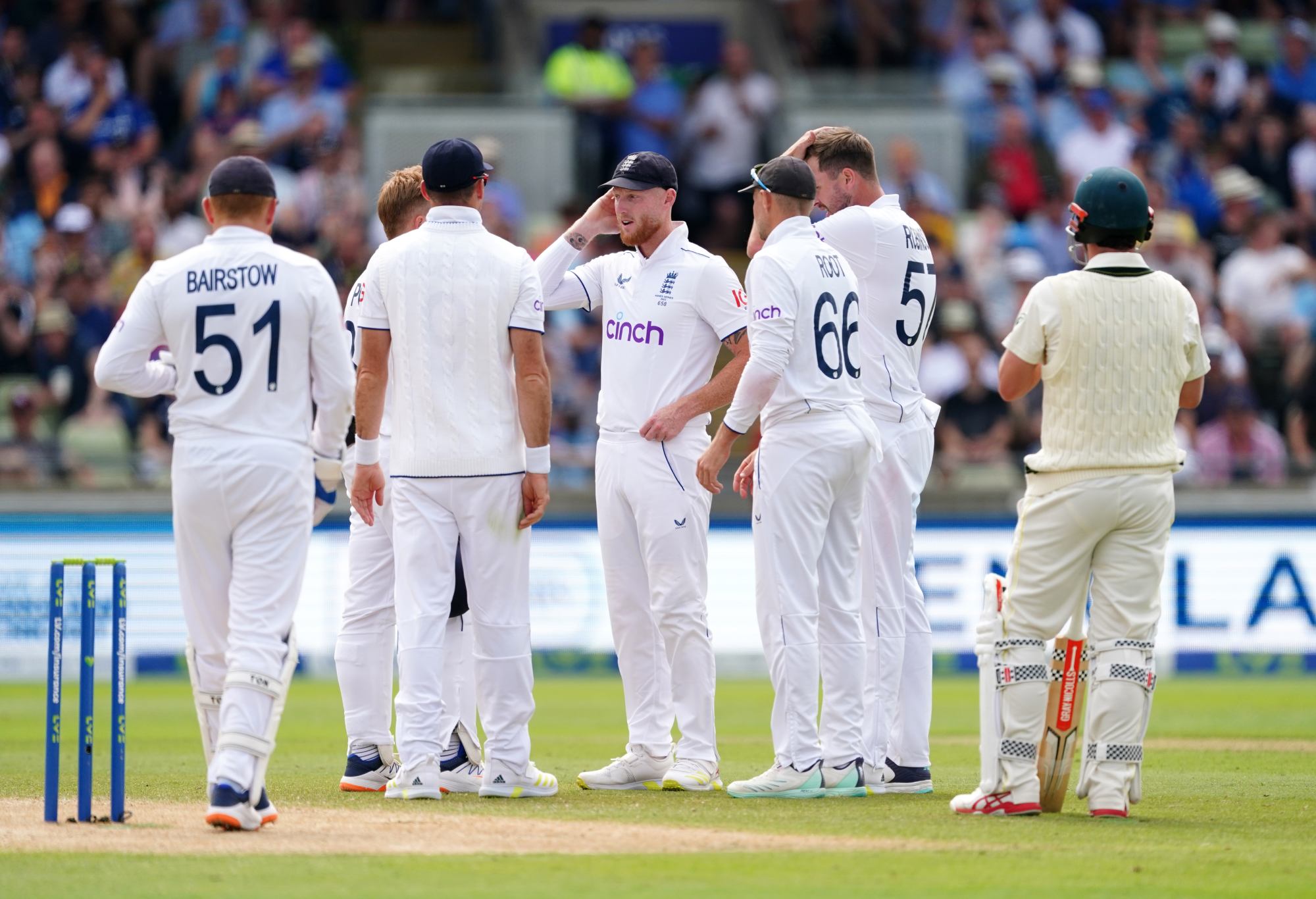It seems incredible that 30 years after the release of Jurassic Park, there are still myriad sports fans who have completely failed to heed the words of Dr Ian Malcolm, but such would seem to be the case, judging by the number of people who seem absolutely certain of what would have happened had Ben Stokes not declared on day one of the first Test.
This intellectual stumbling block is not one restricted to cricket punditry, of course.
Every sport’s commentariat has that segment who don’t seem to understand the basics of chaos theory. Think of how many times you’ve heard it said that because, say, an NRL game was decided by less than six points, a single try contentiously awarded or denied earlier in the game, or a single costly error by a player on the losing side, was the difference.
No, every sport is victim to this affliction. But it’s been highlighted in stunning manner by the arguments around Stokes’ declaration.
To be clear, I am not talking about those who claim that by declaring, Stokes lowered England’s chances of victory. That may or may not be correct, but it is definitely arguable.
I’m talking about the position that because Stokes declared before England had exhausted all their run-scoring potential, not declaring would have resulted in a bigger first innings lead, which would have meant Australia had to chase more in the fourth innings, which would have meant England most likely would have won. Sometimes you get thrown in the idea that with a bigger lead, England could’ve set more attacking fields, etc etc.
In other words, the cricketing equivalent of “We lost by four: if we scored that try under the posts in the fifth minute, we’d have won by two.”
Well, sorry, but sport doesn’t work like that, and the reason sport doesn’t work like that is that the universe doesn’t work like that, and no matter how much it might vex us, sport is still part of the universe, pending Peter V’landys’ next move.
How the universe actually works is this: every time one thing happens instead of another thing happening, everything that would’ve happened if the other thing happened won’t happen, and a whole bunch of other things will happen instead.
Or you could it put it like this: every event that occurs in spacetime creates a chain of causation that is different to the chain of causation that would have been created by a different event.
Or maybe we should just think about butterflies causing hurricanes and water on Jeff Goldblum’s hand. The point is, there’s no way of knowing what would have happened if things weren’t what they are, because they are.
Of course, that’s not true in absolutely 100 per cent of cases. For example at Headingley in 2019, if Nathan Lyon had completed that run-out, or Stokes had been correctly given out lbw, Australia would have won. We know this because either of those actions would have ended the game.
But that certainty can only be applied to game-ending scenarios. A kick after the siren when your team is less than a goal behind will definitely determine the result. Any kick but the last kick of the game will not, even if you end up winning or losing by a point.
In the case of Edgbaston 2023, the possibilities, had Stokes decided to bat on at 8-393, are as follows.
Possibility one: Joe Root continues going mental, Ollie Robinson and/or James Anderson continues hanging around, and England pile on a hundred or more runs, pounding Australia deep into the Birmingham turf, whereupon the battered Aussies trudge to the middle and, confronted with the hopelessness of their task and shocked by the brutality of their Bazballing, fall to pieces, England win in a canter.

England’s Joe Root celebrates reaching his century. (Photo by Mike Egerton/PA Images via Getty Images)
Possibility two: England bat on and on for several hours on the second day, putting up a huge score, but Australia, with the pitch still playing well and already feeling that playing for a draw is the only realistic option given the mammoth size of England’s first innings, stick in for the next two days. Rain comes. Time runs out. Draw.
Possibility three: England bat on for a bit, into day two, but are bowled out fairly quickly. David Warner, not having to start his innings twice, defies the critics by thrashing a spectacular double century. Australia take a 200-run lead. England collapse on day five and are humiliated.
Possibility four: The next two balls dismiss Robinson and Anderson in quick succession. Everything happens basically exactly the same as if there’d been a declaration.
Possibilities five-infinity: pretty much anything else you can possibly think of.
On the other hand, Stokes, in declaring when he did, set up these next possibilities.
Possibility one: Broad and Anderson crash through Australia’s top order on the first evening, reducing them to 3-almost nothing and laying waste to Australian hopes. England win easily inside three days.
Possibility two: An absorbing contest between superb teams and differing approaches results in an all-time classic Test won by Australia by two wickets in lengthening shadows late on day five.
Possibilities three-infinity: pretty much anything else you can possibly think of.
Those are the facts. Stokes didn’t know what his declaration would cause when he did it, and now he’s done it he doesn’t know what might have happened if he didn’t. And neither do I and neither do you.

(Photo by Martin Rickett/PA Images via Getty Images)
This is not to say, of course, that it’s all just a crapshoot. That “Winviz” thingy that TV commentators are far too obsessed with these days is nevertheless a handy illustration of the principle at play here: every development in a game increases the likelihood of certain results, and reduces the likelihood of others. But crucially, no single development can actually make that result happen.
Stokes thought his declaration made victory more likely (at least I assume he did: under Bazball there is a chance he did it just to prove how free-spirited he is). Maybe he was right or maybe he was wrong, but all his decision could have done is tip the scales a little one way or another: it cannot have won or lost the game on its own.
And even more pertinently: we have absolutely no way of knowing how much difference it made.
Not all events are created equal, of course. The weight they carry varies. We’ve already discussed how the last play of a game can decide whether a team wins or loses at that moment.
Right at that pointy end, the range of possibilities can shrink to a minimum, eg: Nathan Lyon takes the ball cleanly and removes the bails, Australia wins the Headingley Test of 2019 – though of course him failing to do so didn’t mean they would necessarily lose, as their opportunities hadn’t been exhausted.
In cricket it rarely, if ever, comes down to that goal-after-the-siren moment that football codes offer, where there are only two possibilities left, and one action will determine which occurs.
There is a spectrum here: the range narrows as the game goes on. Decisions, successes and failures late in a game carry a smaller diversity of potential outcomes: Stokes’s declaration on the first day threw up all kinds of possibilities and was far too early in proceedings for anyone to be even close to definitive on its ramifications.
Conversely, had he declared halfway through day five with a lead of 600 and Australia batted out a draw, while we couldn’t ever guarantee England would have won with a bolder declaration, we could certainly say Stokes had cost his team any realistic chance.

England’s Ben Stokes discusses a decision review with teammates. (Photo by Mike Egerton/PA Images via Getty Images)
However, it is also true decisions taken when a game is in the balance can carry more weight – for example, the question of whether to declare on day one with the game reasonably evenly poised is a more consequential one than the question of whether to declare on day five after three straight days of rain when the other team hasn’t even batted once yet.
Of course, the point at which the game is in the balance varies, too. Dropping a catch when the opposition is four down and 200 runs away from their target is more important than dropping a catch when they’re four down and three runs away; but if they’re nine down in both scenarios, the latter becomes far more significant.
In Origin II, Queensland scored two tries in the first half thanks to, at the very least, questionable refereeing. Had it been the Maroons’ last two tries rather than their first two that were dubious, there would be basically zero chance that they affected the result.
However, because they were the first two, you could say that it was at least possible that a different game would’ve played out if the refs had got it right.
Not that this means, at all, that anyone’s justified in saying NSW lost because of those decisions. In fact, you can’t even say for sure that the margin would’ve been closer had the tries been disallowed. Queensland might have ended up scoring even more points. Or the Blues might’ve capitalised on the possession gained, scored themselves, and never looked back.
Or, yes, maybe it would’ve been basically the same but a bit closer.
In the end Queensland played much better than NSW and it’s unlikely that being denied those two tries would have denied them the win.
Unlikely, but not impossible. Because if the first try is not given, Origin II is a different game.
And not just the first try. If the first penalty kick for touch failed to go out. If the first kick-off was fumbled. If the first hit-up went five metres further forward. Every single “what if” is a completely different sequence of events that will never happen.
So, we can be confident that those two dodgy tries didn’t cost NSW the game. But we can be one 100 per cent certain that they caused the game to play out differently than it would have done.
That’s why it’s just folly to say that if Stokes doesn’t declare, the Edgbaston Test proceeds in exactly the same way, except that England’s first innings is bigger.
If Stokes doesn’t declare, every single thing that happened after the point that he did declare is different. The batters don’t face the same deliveries, at the same time, don’t play the same shots. The bowlers don’t bowl the same balls at the same time.
Jonny Bairstow maybe doesn’t drop anything, because the specific balls that he did drop don’t come to him. Maybe he takes eight catches and five stumpings. Maybe he takes none at all because the Australians don’t edge anything to him or offer any stumping chances.

(Photo by Visionhaus/Getty Images)
Maybe Usman Khawaja is out first ball, because he receives a great ball that, in the game that did play out, never got bowled.
Having said all this, I’m conscious it can come across a bit “don’t criticise anyone for anything, because you never know”. But I don’t mean it to. I don’t mean to say just because it’s possible to win a Test after scoring only 150 in the first innings, declaring at 150-0 is a good idea.
Hell, we’ve just learnt that being eight down with 55 still to get and no recognised batter at the crease will not prevent you from winning, but that doesn’t mean it’s not a really really bad situation to be in, and should, if possible, be avoided.
All I’m saying is, that when we rake over the coals of any game, please remember that what just happened in that game only happened because that absolutely unique sequence of events came up, and that changing just one moment in that sequence means nothing that happened after that one moment would have turned out the same.
It’s been 30 years. For the love of god don’t let the lessons of Jurassic Park be lost on the sporting public any longer.
































































































